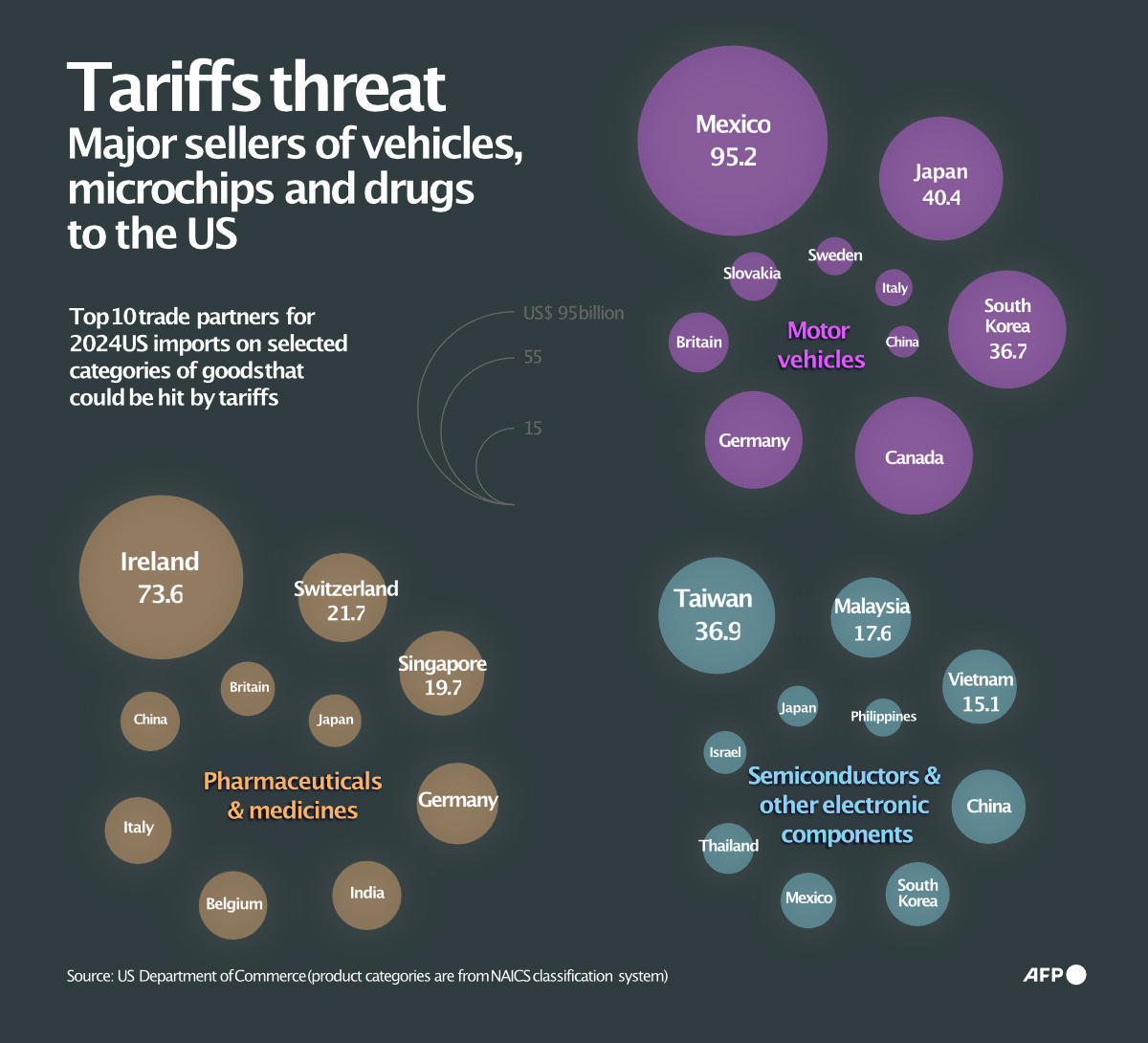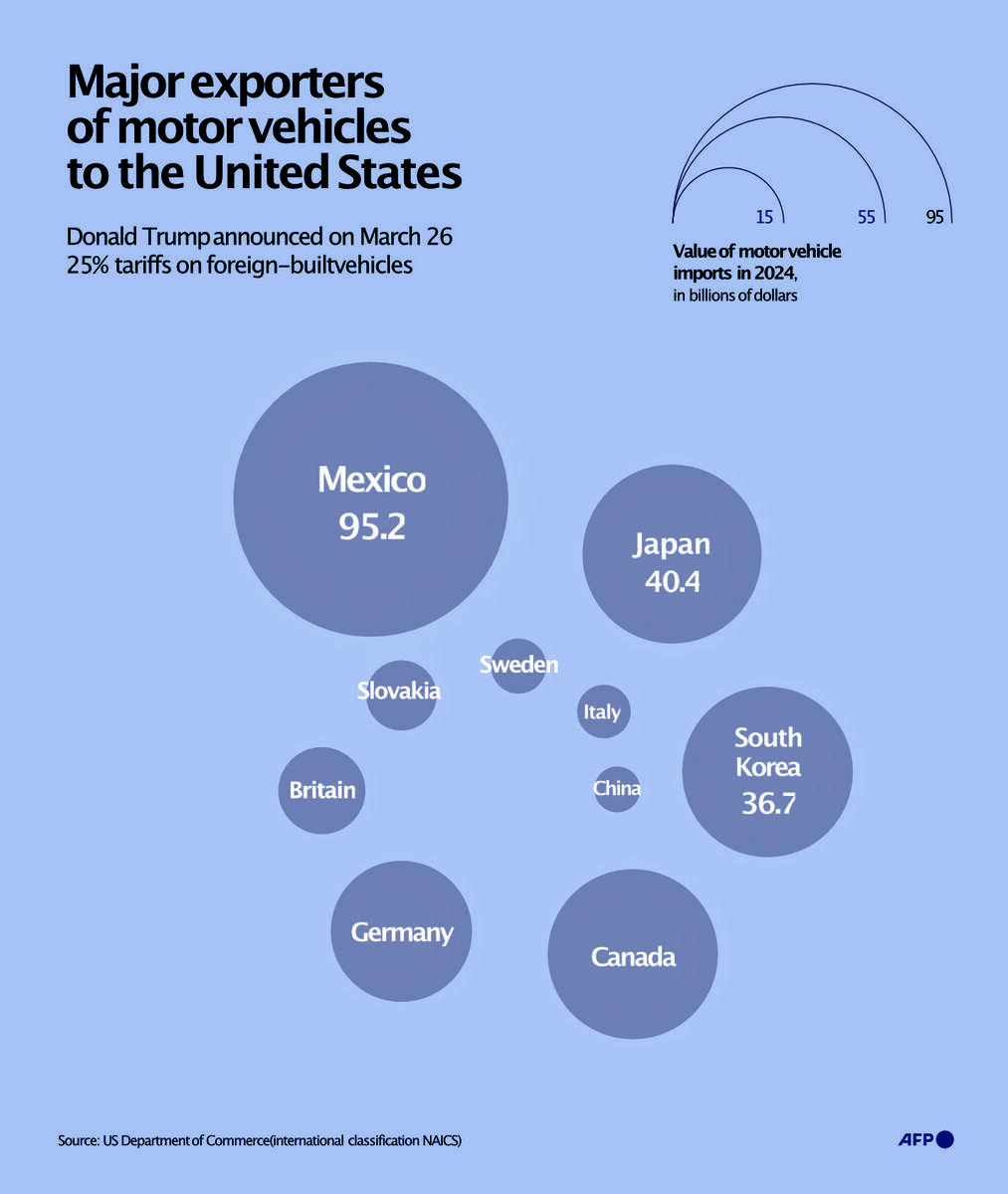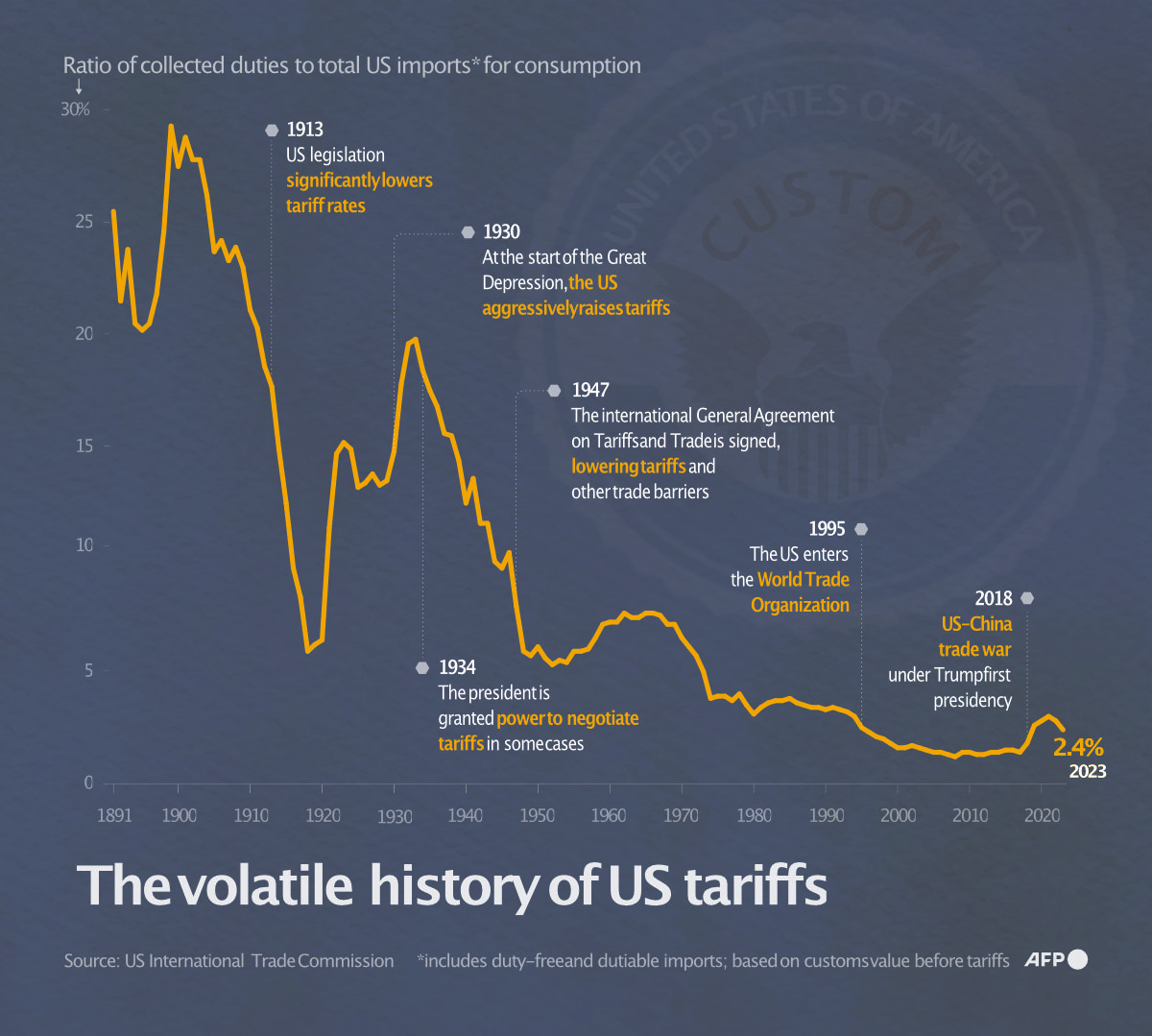WASHINGTON: President Donald Trump on Wednesday unveiled a 10 percent minimum tariff on most goods imported to the United States, with much higher duties on products from dozens of countries, kicking into high gear a global trade war that threatens to drive up inflation and stall US and worldwide economic growth.
The sweeping duties, which drew bewildered condemnation from many long-standing US allies who found themselves tagged with unexpectedly high tariff rates, promise to erect new barriers around the world’s largest consumer economy, reversing decades of trade liberalization that have shaped the global order.
Trading partners are expected to respond with countermeasures of their own that could lead to dramatically higher prices for everything from bicycles to wine.
US Treasury chief Scott Bessent urged other countries to not retaliate.
“Let’s see where this goes, because if you retaliate, that’s how we get escalation,” Bessent told CNN. “Doing anything rash would be unwise,” he added.
Bessent was asked how he expected stock markets to react to the tariffs to which he replied by saying: “I don’t know.”
Stocks slumped after the announcement. Japan’s Nikkei hit an eight-month low in early trading on Thursday, while US and European stock futures dropped sharply following weeks of volatile trading driven by uncertainty over the escalating trade war.
US stocks have erased nearly $5 trillion of value since mid-February.
Chinese imports will be hit with a 34 percent tariff, on top of the 20 percent Trump previously imposed, bringing the total new levy to 54 percent. Close US allies were not spared, including the European Union, which faces a 20 percent tariff, and Japan, which is targeted for a 24 percent rate. The base rates go into effect on April 5 and the higher reciprocal rates on April 9.
The effective US import tax rate has shot to 22 percent under Trump from just 2.5 percent in 2024, according to the head of US research at Fitch Ratings.
“That rate was last seen around 1910,” Olu Sonola said in a statement. “This is a game changer, not only for the US economy but for the global economy. Many countries will likely end up in a recession. You can throw most forecasts out the door if this tariff rate stays on for an extended period of time.”
The “reciprocal” tariffs, Trump said, were a response to duties and other non-tariff barriers put on US goods. He argued that the new levies will boost manufacturing jobs at home.
“For decades, our country has been looted, pillaged, raped and plundered by nations near and far, both friend and foe alike,” Trump said at an event in the White House Rose Garden.
Outside economists have warned that tariffs could slow the global economy, raise the risk of recession, and increase living costs for the average US family by thousands of dollars.
Canada and Mexico, the two largest US trading partners, already face 25 percent tariffs on many goods and will not face additional levies from Wednesday’s announcement.
Even some fellow Republicans have expressed concern about Trump’s aggressive trade policy.
Within hours of Wednesday’s announcement, the Senate voted 51-48 to approve legislation that would terminate Trump’s Canadian tariffs, with a handful of Republicans breaking with the president. Passage in the Republican-controlled US House of Representatives, however, was seen as unlikely.
Trump’s top economist, Stephen Miran, told Fox Business on Wednesday the tariffs would work out well for the US in the long run, even if they cause some initial disruption.
“Are there going to be short-term bumps as a result? Absolutely,” Miran, the chairman of Trump’s Council of Economic Advisers, told the network’s “Kudlow” program.
Ending ‘de minimis’
The reciprocal tariffs do not apply to certain goods, including copper, pharmaceuticals, semiconductors, lumber, gold, energy and “certain minerals that are not available in the United States,” according to a White House fact sheet.
Following his remarks, Trump also signed an order to close a trade loophole used to ship low-value packages — those valued at $800 or less — duty-free from China, known as “de minimiz.” The order covers goods from China and Hong Kong and will take effect on May 2, according to the White House, which said the move was intended to curb the flow of fentanyl into the US
Chinese chemical makers are the top suppliers of raw materials purchased by Mexico’s cartels to produce the deadly drug, US anti-narcotics officials say. A Reuters investigation last year showed how traffickers often route these chemicals through the United States by exploiting the de minimiz rule. China has repeatedly denied culpability.
Trump is also planning other tariffs targeting semiconductors, pharmaceuticals, and potentially critical minerals, the official said.
Trump’s barrage of penalties has rattled financial markets and businesses that have relied on trading arrangements that have been in place since the middle of last century.
Earlier in the day, the administration said a separate set of tariffs on auto imports that Trump announced last week will take effect starting on Thursday.
Trump previously imposed 25 percent duties on steel and aluminum and extended them to nearly $150 billion worth of downstream products.
Tariff concerns have already slowed manufacturing activity across the globe, while also spurring sales of autos and other imported products as consumers rush to make purchases before prices rise.
European leaders reacted with dismay, saying a trade war would hurt consumers and benefit neither side.
“We will do everything we can to work toward an agreement with the United States, with the goal of avoiding a trade war that would inevitably weaken the West in favor of other global players,” Italy’s prime minister, Giorgia Meloni, said.
US Representative Gregory Meeks, the top Democrat on the House Foreign Affairs Committee, said he would introduce legislation to end the tariffs. Such a bill has little chance of passing the Republican-controlled Congress, however.
“Trump just hit Americans with the largest regressive tax hike in modern history — massive tariffs on all imports. His reckless policies are not only crashing markets, they will disproportionately hurt working families,” Meeks said.


























